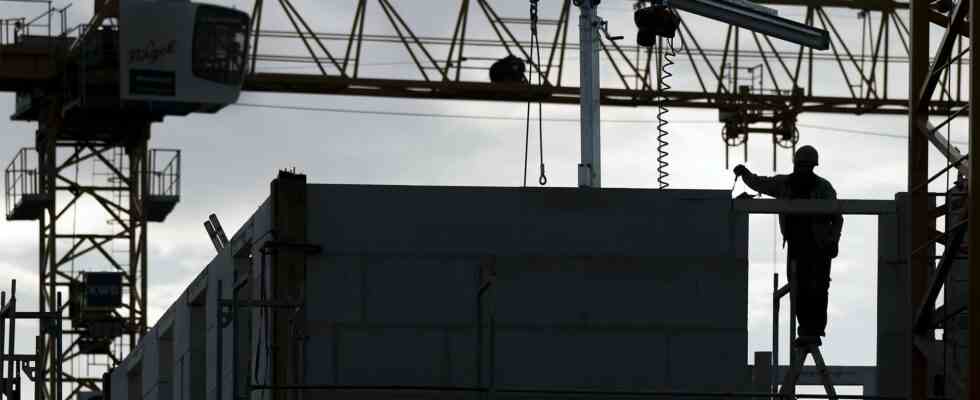Status: 02/13/2023 12:56 p.m
According to estimates by the EU Commission, the economic situation in Germany is likely to develop better than expected. According to forecasts, however, growth will be very low.
In its current economic outlook, the EU Commission is of the opinion that Germany will not fall into a recession in 2023. The Brussels authority expects a small increase of 0.2 percent in gross domestic product (GDP). The forecast has thus improved significantly after having estimated a minus of 0.6 percent in November.
The prospects are also more optimistic for Europe as a whole: the economy in the euro zone did not shrink in the fourth quarter of 2022. Slightly higher growth of 0.9 percent is now expected for 2023, instead of the previously forecast 0.3 percent, the EU Commission explained.
Favorable developments since the autumn forecast have improved the growth prospects for this year,” the commission now explained. The technical recession initially feared for the turn of the year, an economic contraction lasting two quarters, will thus probably be averted in the euro zone.
“Greatly reduced consumption”
One reason is the energy crisis, which the Commission believes has been well mastered in Germany and Europe. Among other things, she refers to the “diversification of supply sources” for natural gas and the “drastically reduced consumption”. As a result, gas storage facilities are full and the wholesale price has fallen to the level before the Russian attack on Ukraine.
“The risks of recession and gas shortages have receded and unemployment remains at record lows,” said EU Economy Commissioner Paolo Gentiloni.
Inflation prospects are improving
Inflation is unlikely to be as bad in 2023 as initially feared. The EU Commission is expecting an inflation rate (HICP) of 6.3 percent calculated for a European comparison in Germany in 2023; in November it had predicted a value of 7.5 percent. For the euro zone, she now estimates an inflation rate of 5.6 percent after 6.1 percent in the autumn forecast.
With energy prices falling sharply from last year’s highs and supply chain problems easing, the ECB could also lower its own inflation forecasts in March, Croatia’s central bank chief Boris Vujcic recently told Reuters. In December, the European Central Bank (ECB) had estimated an increase in consumer prices of 6.3 percent for 2023.
Germany stronger than expected
The federal government has also become more optimistic of late, at least as far as the economic prospects are concerned. For the year as a whole, it expects growth of 0.2 percent and the International Monetary Fund (IMF) 0.1 percent. The risk of a severe recession has therefore decreased because the feared gas shortage situation as a result of a lack of Russian supplies could be averted.
In the monthly report published today by the Ministry of Economic Affairs, the experts expect the economy to slow down in the first few months of this year, also because companies are reluctant to invest. “Current indicators confirm the expected economic slowdown in the winter half of 2022/23,” it says. “But this should be mild overall.”
Surprisingly, the German gross domestic product fell by 0.2 percent in the last fourth quarter, after growing by 0.5 percent in the summer quarter. If there is a second minus in a row in the current first quarter, economists speak of a technical recession.
Probably not a global recession
The topic of recession is also widely discussed on a global scale. Economic experts from all over the world are currently no longer expecting a global recession this year. Global gross domestic product is likely to grow by an average of 2.8 percent, according to the quarterly survey published today by the Munich Ifo Institute with the Institute for Swiss Economic Policy. “According to our experts, a global recession is becoming increasingly unlikely worldwide,” said Ifo researcher Klaus Gründler.
“A look at the individual continents reveals major differences,” the survey said. Contrary to increasingly optimistic expectations around the world, experts in Europe are less optimistic and see their countries “on the verge of recession”. In Eastern Europe (0.1 percent) and Western Europe (0.7 percent) in particular, they are assuming low growth rates in the current year, which will only slowly adjust to the generally positive global expectations by 2026.
Low growth is also forecast for North America (1.6 percent) and South Asia (1.7 percent).

